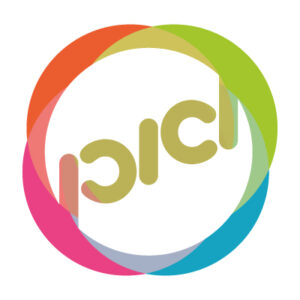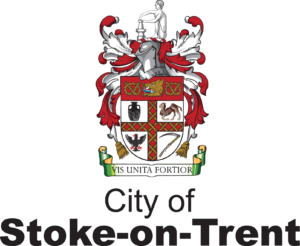What is Tactile?
Tactile is an exploration and appreciation of traditional tile-making techniques of Stoke-on-Trent. Supporting contemporary interpretations of Stoke-on-Trent’s important ceramic heritage, the programme will encourage wellbeing, resilience and positive mental health outcomes. Whilst learning new clay skills and processes, participants will also benefit from mindful exploration of materials. By bringing people together in a creative setting, this collective, positive action will support the building of community cohesion and support networks.
Tile-making heritage
Tile production in Britain can be traced back nearly 2000 years. Made first by Roman military craftsmen, then by the potters of the Middle Ages, tiles finally found their way into the heart of the industry in Stoke-on-Trent. In the 1840s, the invention of the clay dust-pressing method by Richard Prosser, in collaboration with Herbert Minton of Minton, Hollins & Co gave birth to the famous encaustic tile and its large-scale production.
Inspiration comes mainly from the medieval technique of inlay, where clays of contrasting colours create patterns in the tile. Encaustic tiles played an important role in the Gothic Revival movement. You can find some of their finest examples in places like Westminster Cathedral, the Bethesda Terrace Arcade in New York or the Capitol Building in Washington DC. Simpler designs also line the entrances and floors of many houses in Stoke-on-Trent and other cities in the UK.
British Ceramics Biennial and Staffordshire University
During the 2023 Biennial, we invited visitors to take part in our Tactile Project Space. They were able to explore of some of the techniques, shapes and colours behind the tile traditions of Stoke-on-Trent. The larger aim of the project is to create a living floor from the tiles to support local ecology. The tiles remain unfired, using the potential of clay as a growing medium for a wildflower meadow in the city.
We will install the meadow on the Staffordshire University campus in Stoke-on-Trent. In the weeks leading up to the installation, workshops will take place with students to create tiles in addition to those made in the Biennial.
British Ceramics Biennial and YMCA North Staffordshire
YMCA North Staffs have several publicly accessible greenspaces that they would like to focus on developing to become more sustainable. Weekly workshops will take place with a group of residents and members of Sanctus. The BCB Associate Artists will explore how the tile meadow process might be useful in documenting and monitoring planting schemes within these areas. They will create both a digital and paper record of the planting for future reference.
There will be an informal introductory session to familiarise the artists with the potential participants and locations. They will then run weekly sessions for six weeks from the YMCA activities area as well as outside. There will be a celebration event at the end of March, which participants will take charge of planning and delivering.
Who is delivering?
Along with staff from the involved organisations, we have three BCB Associate Artists leading the Tactile project.
- Joanna Dawidowska
- Sarah Fraser
- Natalia Kasprzycka
How to get involved
Keep an eye on our social media for upcoming workshops and events. If you are part of a local community group or organisation and would like to get involved with the project, please email our Studio & Community Programme Manager Jo Mills: jo@britishceramicsbiennial.com.
Clay & Communities
Tactile is part of the Clay & Communities programme, delivered through a partnership between British Ceramics Biennial (BCB) and Partners in Creative Learning (PiCL). Clay & Communities is funded by the UK Government through the UK Shared Prosperity Fund (UKSPF), which is managed by the City of Stoke-on-Trent Council.



![]()
